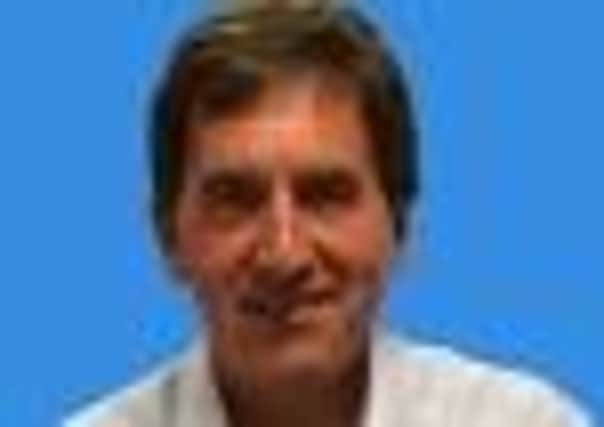India the shape of things to come for laser maker Rofin


Rofin-Sinar UK’s turnover has grown by 40 per cent over the last year to £20m as it cashes in on the rapid expansion of the Chinese economy.
The company, which can trace its roots back to a Hull University spin-out which was founded 30 years ago, is shipping up to 400 units a year to China and its sights are set on customers in India and South America, where the new middle classes have a big appetite for sophisticated goods.
Advertisement
Hide AdAdvertisement
Hide AdKen Lipton, the company’s managing director, said: “The lasers are used on robots to cut the interior trims of your car, and they are used in Korea to cut the glass on the front of your television screens.”
Nike trainers are made using Hull-based Rofin-Sinar’s lasers to cut out the leather shapes. The date codes on Kelloggs’ cereal packets are also created by the company’s lasers.
Mr Lipton said it was the type of knowledge-based, export-focused manufacturing enterprise that could help to offset the UK’s balance of trade deficit.
He added: “Our business is the perfect template.
“It’s just what the Government wants, they just need more companies like us.
Advertisement
Hide AdAdvertisement
Hide Ad“The big bulge in China is shifting to India,’’ he added. “India is four or five years behind China in terms of development, they don’t have the infrastructure, such as roads.
“It’s a different environment with very high humidity, which affects the life-span of hi-tech materials.”
Mr Lipton said he anticipated a similar growth pattern in India to that experienced in China.
He expects 15 to 20 per cent of business to go to India in the next five years.
Advertisement
Hide AdAdvertisement
Hide AdRofin-Sinar, which has 120 staff, is already selling laser units for the Indian automotive industry.
He added: “The shoe industry in India currently doesn’t use laser technology, but it is used for cutting and texturising in China, and India will follow their lead. Textile cutting will adopt lasers as they have in China.
“A lot of orders are also going to Brazil where there is an up and coming middle class.
“About a quarter of the business is driven by the growth in consumerism.
Advertisement
Hide AdAdvertisement
Hide Ad“The lasers are being used for luxury items like customised leather goods, handbags, shoes, and champagne glasses. Other uses include cutting the fabric on air bags.”
This year, Mr Lipton expects to achieve 10 per cent growth so the company can “catch its breath”.
“You want to ensure that the processes run smoothly,” he said. “We are stretching our supply chain and they have to catch up.”
The business was set up by Dr Lipton and a Yorkshire-based management team 14 years ago.
Advertisement
Hide AdAdvertisement
Hide AdThey received support from Rofin, the laser maker based in Hamburg, Germany. In 2007, Rofin took on 100 per cent ownership of the company.
Dr Lipton added: “One of our big strengths is that our business is virtually all export.
“The wide geographic reach of our business means that no one market is going to affect us too much.
“In places like China, there’s a need for our products and there’s no viable local supplier.
Advertisement
Hide AdAdvertisement
Hide Ad“It’s not easy to find the right sort of skills for our type of busi- ness.
“Creating a trained worldwide service operation for the market is not something that’s easy to do – that’s a barrier to new ent- rants.
“We are set fair,’’ he said. “We’ve got a huge order book, the biggest problem is meeting it and delivering orders on time.
“When we first started, we were shipping 50 to 100 units a year, now we are shipping around 1,500 a year.
Advertisement
Hide AdAdvertisement
Hide Ad“The German owners take a long term view of the business, they tend to believe in organic expansion, whereas Americans like to buy and sell and focus on quarterly earnings.”
Mr Lipton also praised the work of Yorkshire Forward, the regional development agency which is being scrapped as part of the Coalition Government’s spending cuts.
Rofin-Sinar has developed a range of low-powered C02 lasers with support from a £608,000 grant from Yorkshire Forward, which was approved last year.
Bringing in the best talent
LASER manufacturer Rofin-Sinar UK is helping to attract top class engineering talent to Hull from countries including Turkey and France, according to Ken Lipton, the firm’s managing direc- tor.
Advertisement
Hide AdAdvertisement
Hide AdThe company has strong links with specialists at Hull University and Heriot-Watt University in Edinburgh.
“Our products have been derived from their research work,’’ said Mr Lipton.
Engineers from France and Turkey also work at Rofin-Sinar UK.
The company has received the Queen’s Award for Enterprise: Innovation in recognition of its work to develop a C02 laser which can be used on plastics, steel, glass and ceramics.